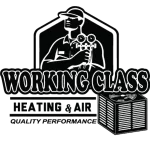Emergency HVAC Repairs: What to Do When Your System Fails
Few things are more stressful than having your HVAC system fail when you need it most. Whether it’s a scorching summer day or a freezing winter night, a broken HVAC unit can cause discomfort, health risks, and even property damage. Knowing what to do during an HVAC emergency is crucial for staying safe and getting your system back up and running quickly. Here’s a homeowner’s guide to identifying issues, staying safe, and securing professional repairs fast.
How to Identify an HVAC Emergency
Complete System Failure
If your heating or cooling system stops working entirely, this is a clear sign of a serious issue that needs immediate attention.
Strange Noises or Smells
Unusual sounds like banging, screeching, or grinding, as well as burning or gas odors, may indicate mechanical failures, electrical issues, or even gas leaks.
Ice Formation or Leaks
Ice buildup on coils or visible water leaks around your unit can signal refrigerant problems, drainage issues, or clogged filters.
Unresponsive Thermostat
A thermostat that doesn’t respond or shows incorrect readings might mean an electrical malfunction, sensor issue, or a bigger system failure.
Steps to Take During an HVAC Emergency
Stay Calm and Assess the Situation
First, stay calm. Check for obvious issues like a tripped breaker, a clogged air filter, or a dead thermostat battery. Sometimes, these simple problems are the culprits.
Turn Off the System if Necessary
If you notice burning smells, sparks, or smoke, turn off the system immediately using the breaker or power switch. This can prevent further damage or even a fire.
Ensure Safety First
If you suspect a gas leak, evacuate your home immediately and contact your gas provider or fire department. Do not re-enter the property until it is deemed safe.
Call a Professional HVAC Technician
Contact a certified HVAC contractor as soon as possible. Look for companies offering 24/7 emergency services, and provide detailed information about the issue to speed up the repair process.
Avoid DIY Repairs
While it’s tempting to troubleshoot or fix the system yourself, HVAC emergencies often involve complex issues like electrical failures or refrigerant leaks. DIY attempts can be dangerous and may void warranties.
Prevent Future Emergencies with Regular Maintenance
Schedule Seasonal Inspections
Having your system professionally inspected and maintained twice a year helps prevent unexpected breakdowns.
Replace Filters and Clean Vents
Regular filter changes and vent cleaning improve airflow and reduce strain on your system.
Watch for Warning Signs
Address small issues like unusual noises, poor airflow, or inconsistent temperatures before they turn into major problems.
FAQ: Emergency HVAC Repairs
What should I do if my HVAC system stops working completely?
Check the thermostat settings, breaker, and filters. If the problem persists, turn off the system and call an emergency HVAC technician for professional repairs.
How do I know if I have a gas leak in my HVAC system?
Signs of a gas leak include a rotten egg smell, hissing sounds, or visible gas lines with damage. Evacuate your home immediately and call your gas provider or fire department.
Can I fix a frozen coil myself?
No. A frozen coil often indicates refrigerant issues or airflow blockages that require professional service. Turn off the system and call a certified technician.
How quickly can an HVAC technician respond to an emergency?
Many HVAC companies offer 24/7 emergency services and can typically respond within a few hours, depending on your location and the severity of the issue.
How can I prevent future HVAC emergencies?
Schedule regular maintenance, replace filters every 1–3 months, clean vents, and address small issues promptly. Investing in a maintenance plan with a trusted HVAC provider can also help.




0 Comments